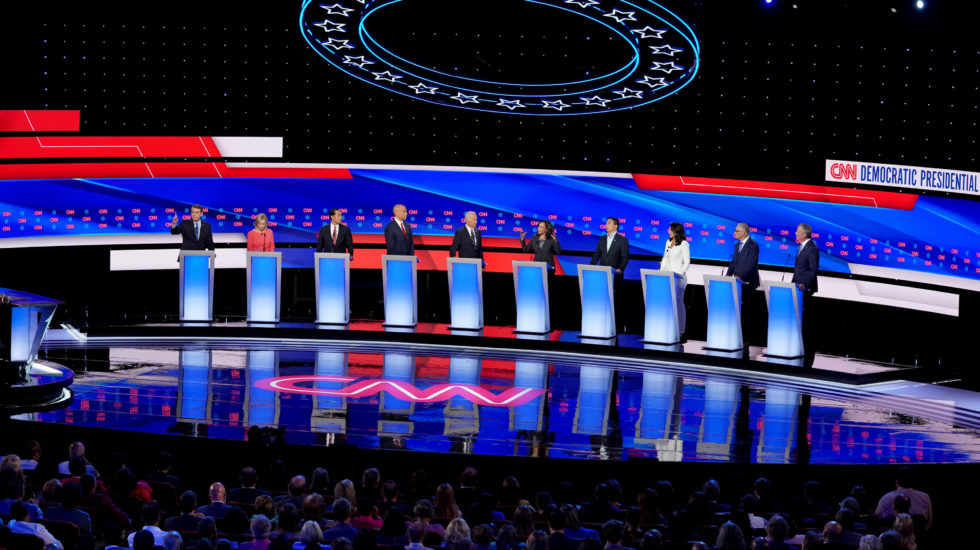The second night of debates had the feeling of a sequel. And not a Godfather II sequel.
We heard a lot about plans that will never come to reality. We saw Biden vs. Harris, take two, and many other attacks on Harris and Biden as the front runners on stage. Both pushed back, how ably will be likely in the eye of the beholder. There were the divisions we saw last night, about the political and economic feasibility of Medicare for all. There were one-liners, some cringeworthy and others punchy. There was some soaring rhetoric and a lot of sense, on race, climate change, and so on.
A primary is about trying to create daylight among people who agree more than they disagree, especially when compared to the current administration. For all the sharp verbal elbows, for all the lists and variations of “let the record show,” the real question is who will win the mantle of the nomination. Who is moving the electorate? Who assuages fears of electability? Who inspires? Who do people feel they can comfortably see as president? And most importantly for the Democratic electorate, who can beat Donald Trump?
I think the contours of the race remain largely unchanged. Biden is the front runner. Warren rises with the spirit of The Little Engine That Could. Sanders remains formidable but without some of the magic from 2016. Harris had a moment, but she needs more. Buttigieg is a player in the conversation but may have hit a ceiling. Everyone else is looking for an opening from the back of the pack. For most, the race is likely soon to be over.
I know a lot of people are worried that these pointed, sometimes passionate and often personal moments between candidates are weakening the party in advance of this pivotal election. I urge caution. Oftentimes this process is like spring training, getting the ultimate candidate into playing shape. And these debates may be as determinative as a preseason box score. But that doesn’t mean they aren’t important. It’s all part of the process.
I was struck by something that was largely missing from the last two nights. In many ways, this could have been a debate held in 2008 or 2016 in terms of the discussion of policy. But we live in the Age of Trump. This is unlike any moment in our national history. We can debate the nuances of healthcare or policy positions from decades past. We can parse words and legislation. All that’s valid. But there is an existential shadow over all of this. In the end, this election will be about a president whose character, actions, and rhetoric are unlike anything we have seen in American history. The Democratic candidate, whoever that may be, will need to address the threat to our democratic values fully and passionately.
To be sure, there was a lot of poignant and direct criticism of the president. But I didn’t hear as much of the emotional appeal to our values as a people and nation. I suspect that turn in messaging will come when the primary season shakes out, but I am surprised that we haven’t heard more from the candidates in this vein already. I also suspect the Democratic electorate is hungry for more of that message.



